Презентация Z- Reported Speech

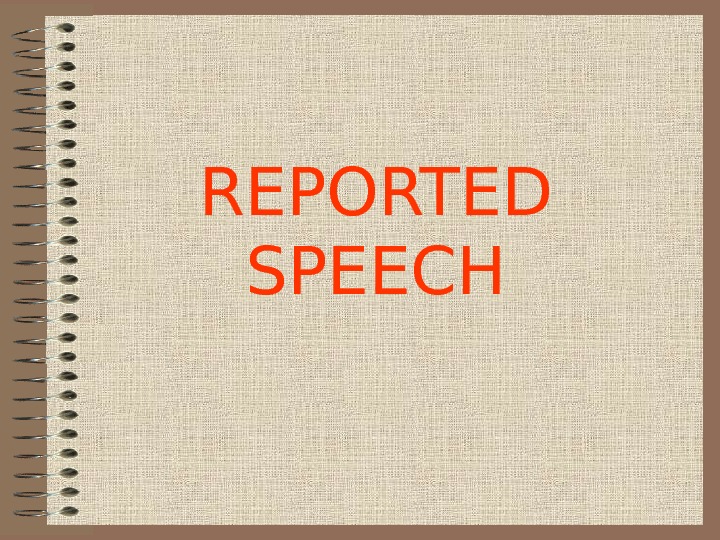
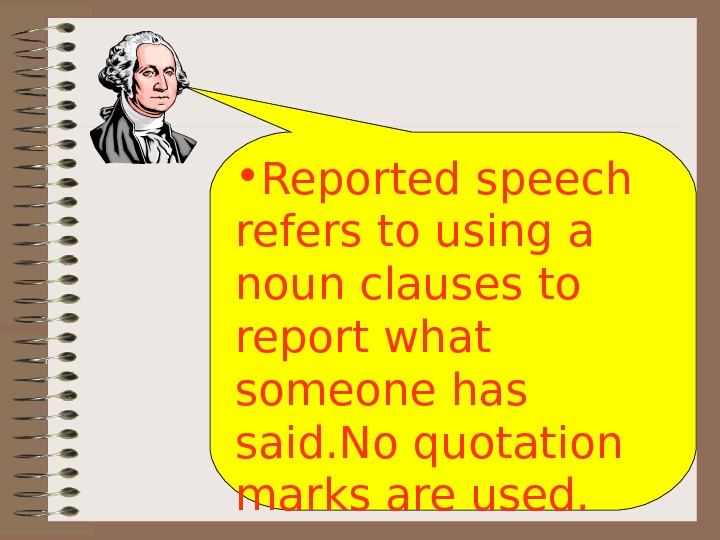
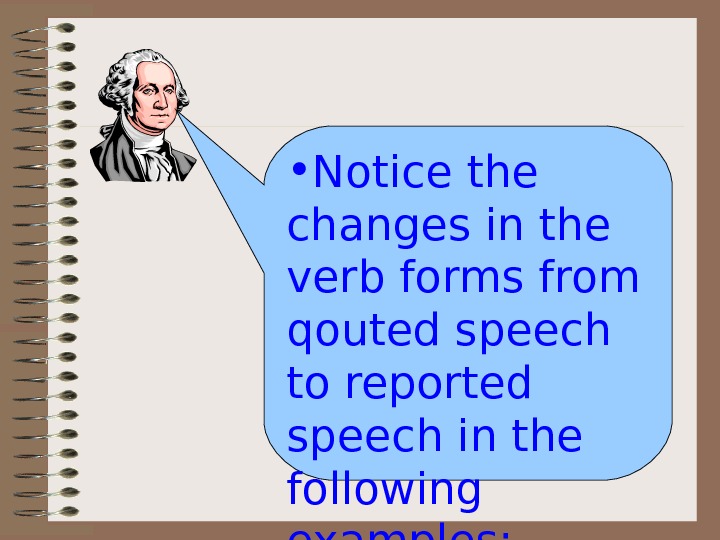
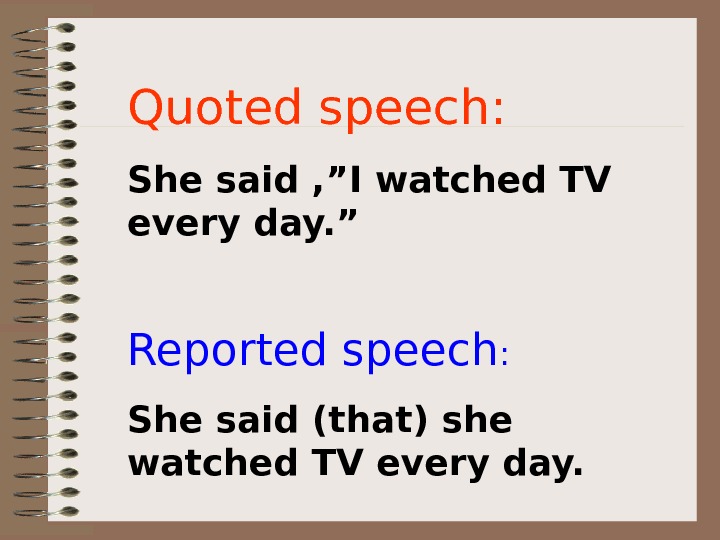
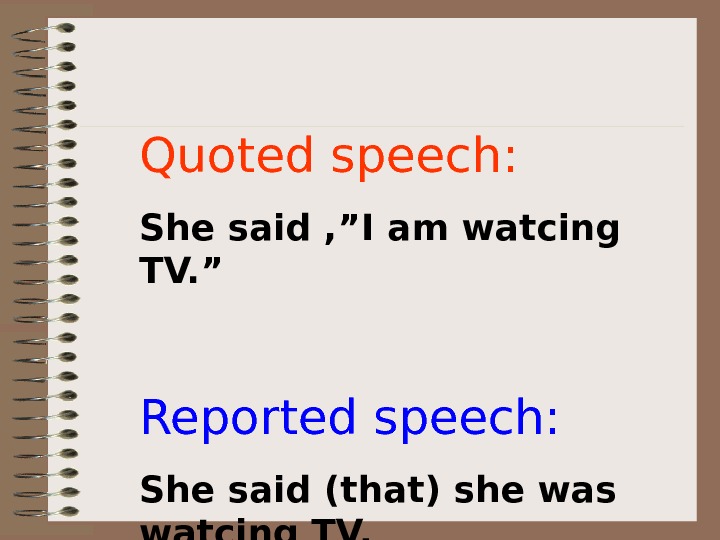
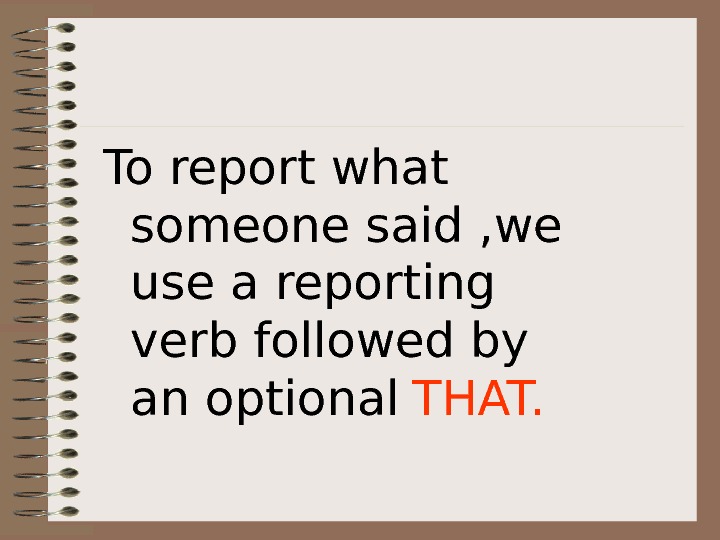
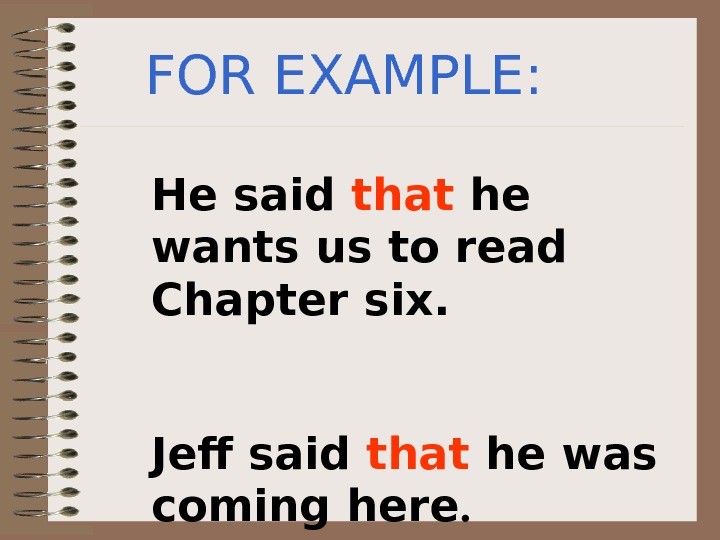
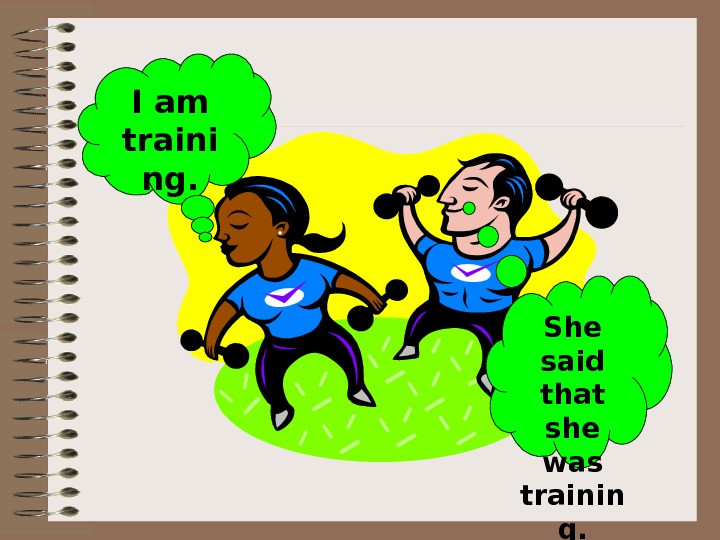
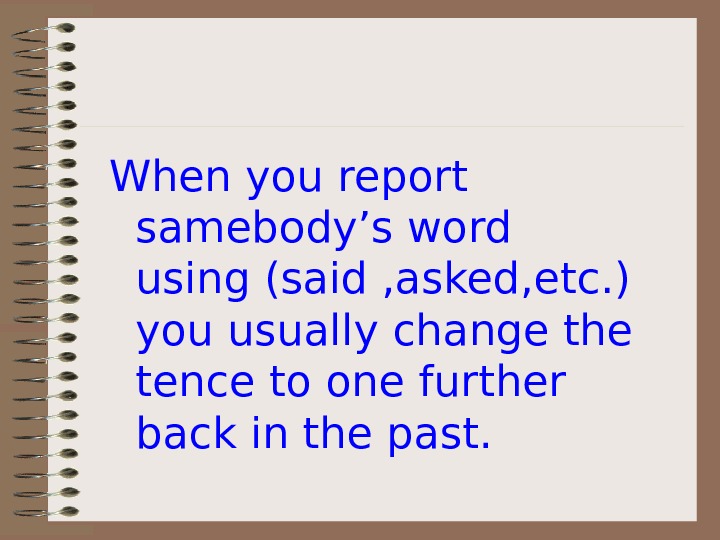
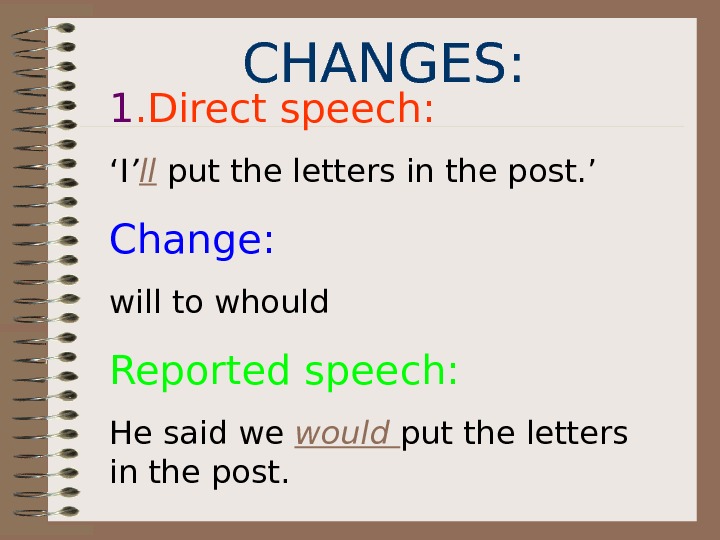
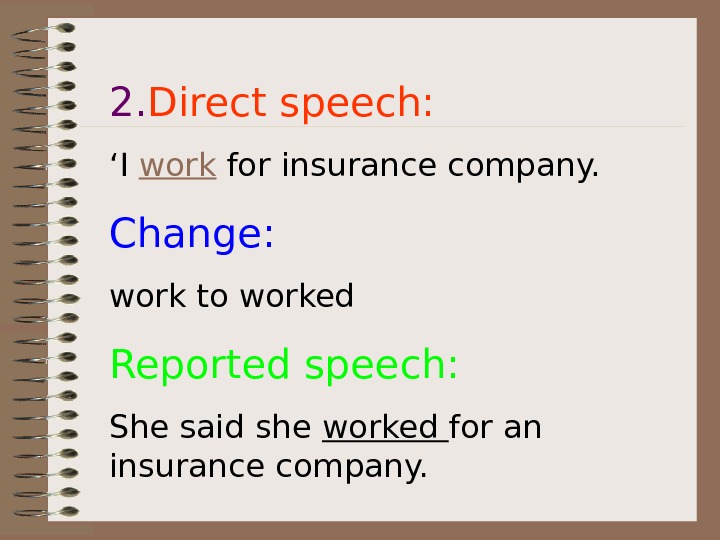
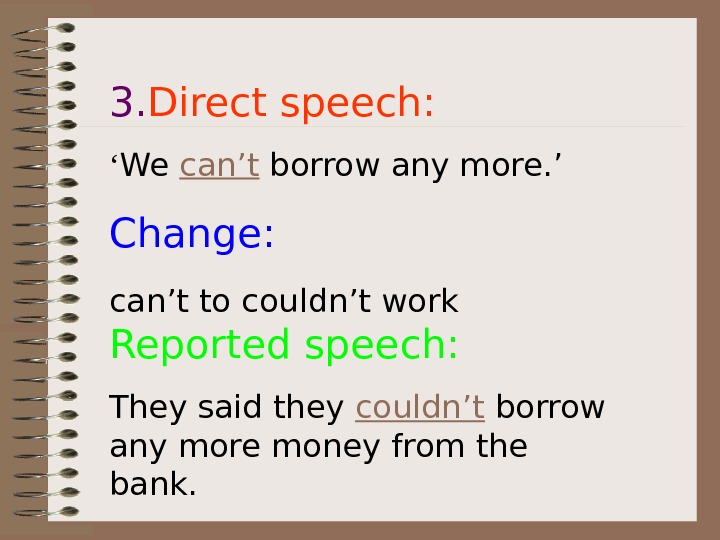
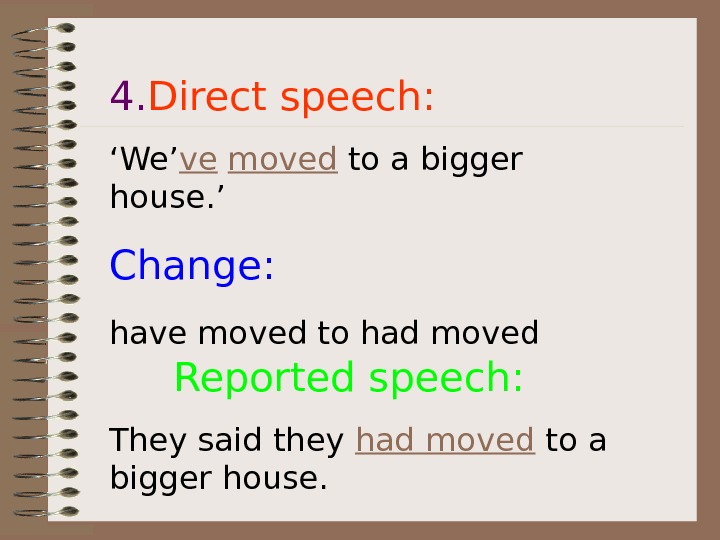

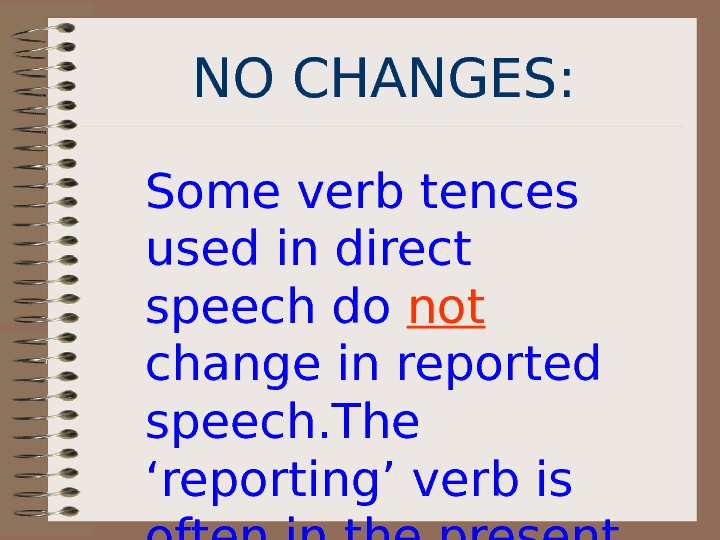
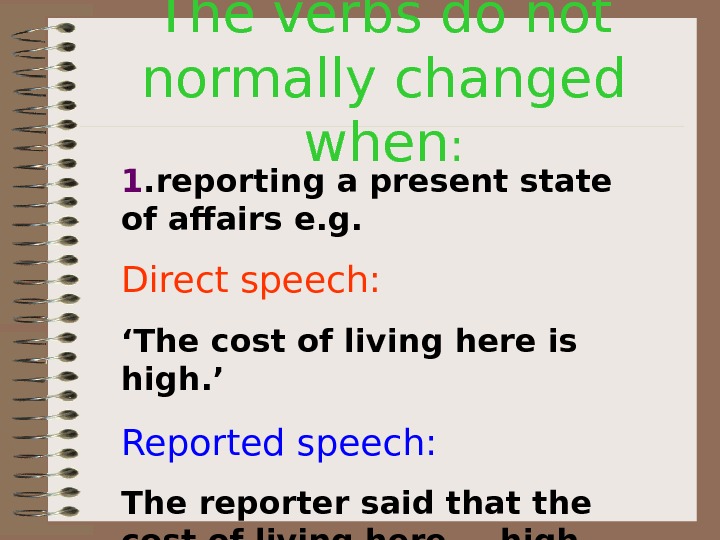
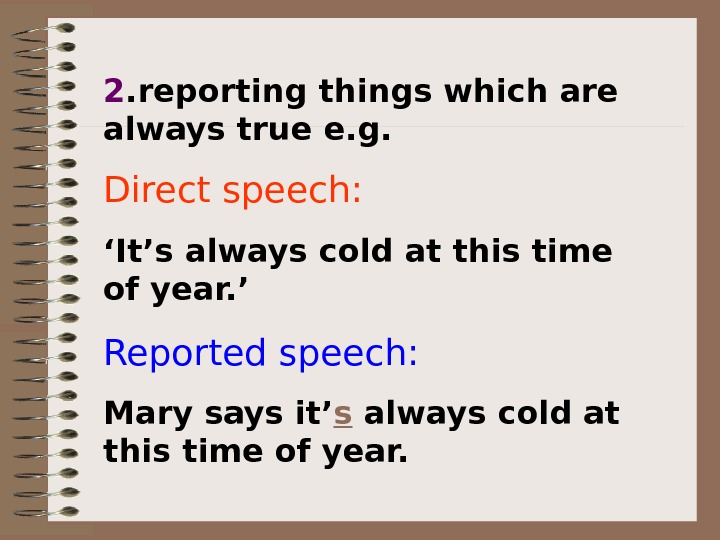
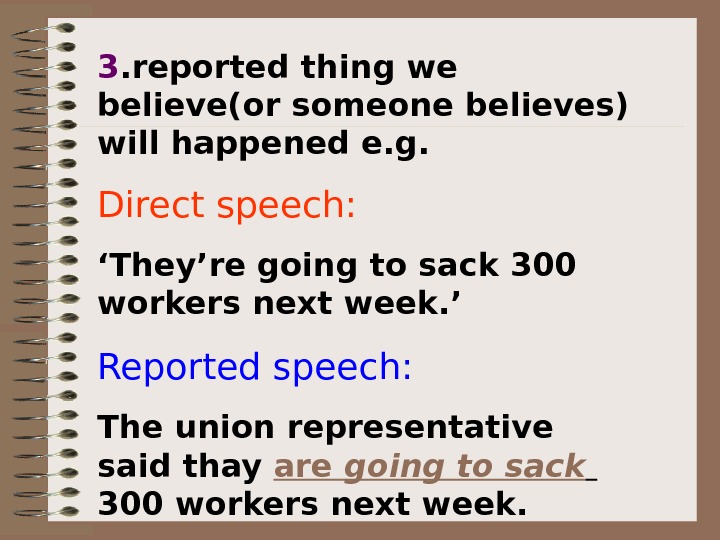
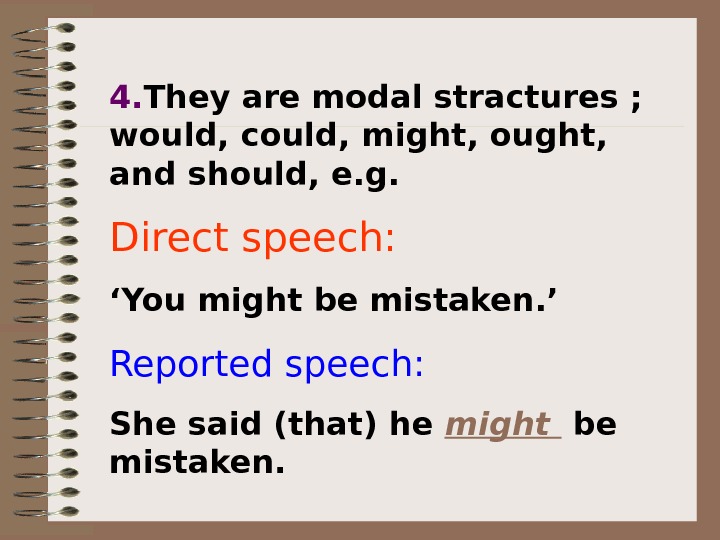
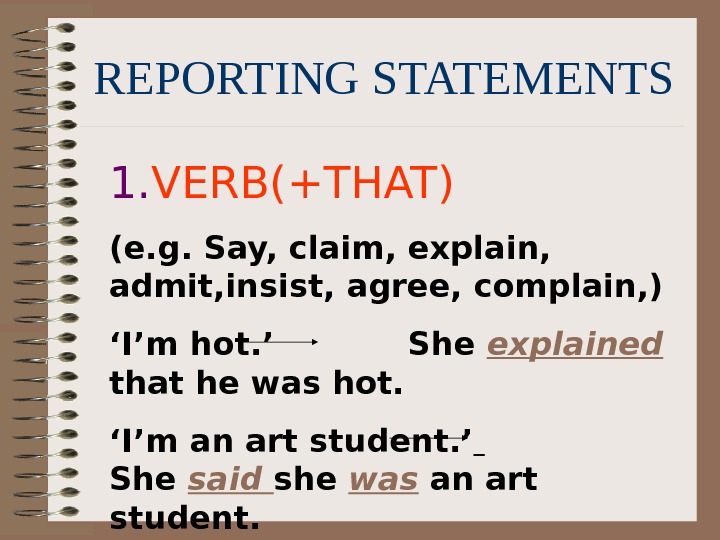
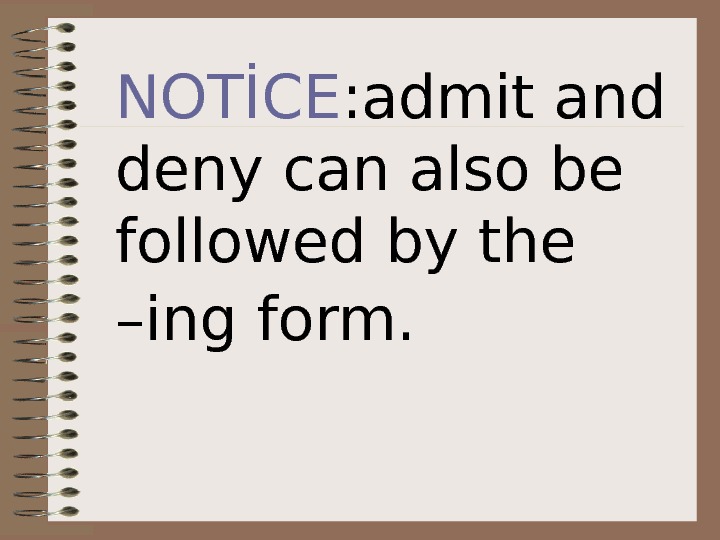
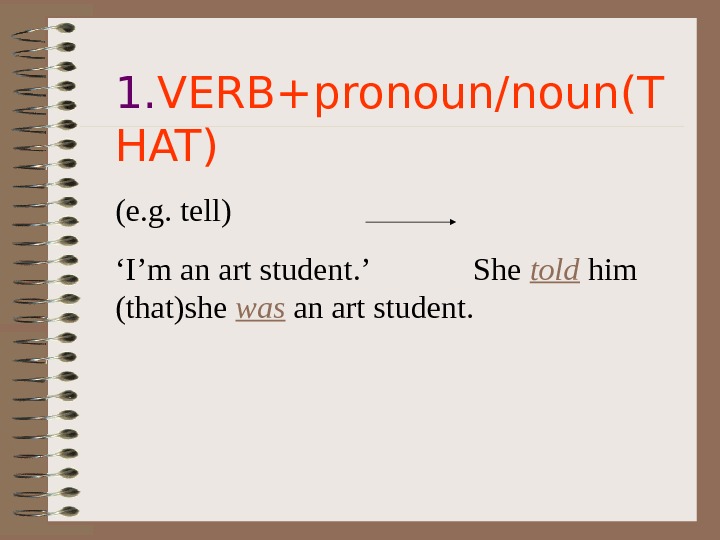
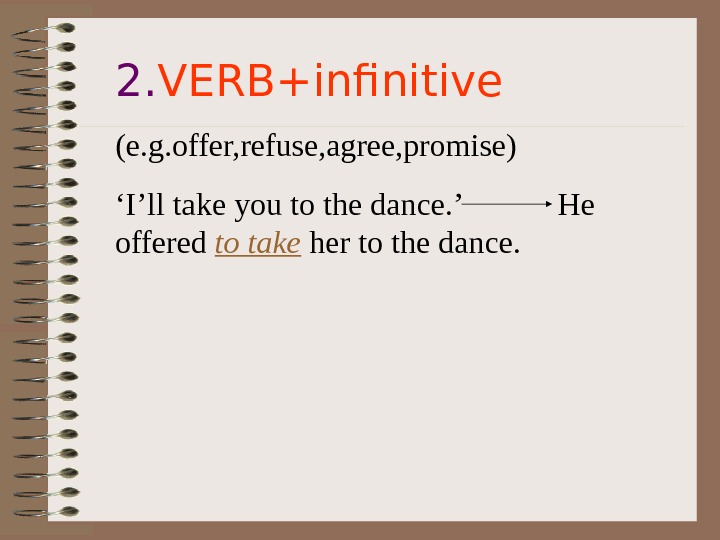
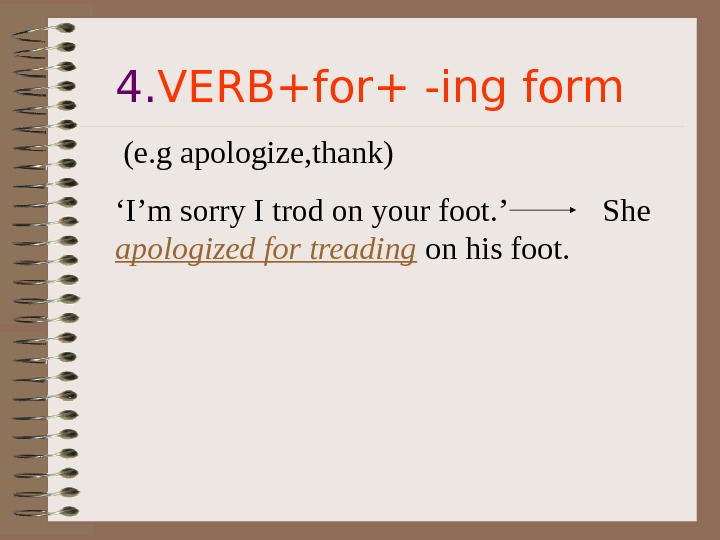
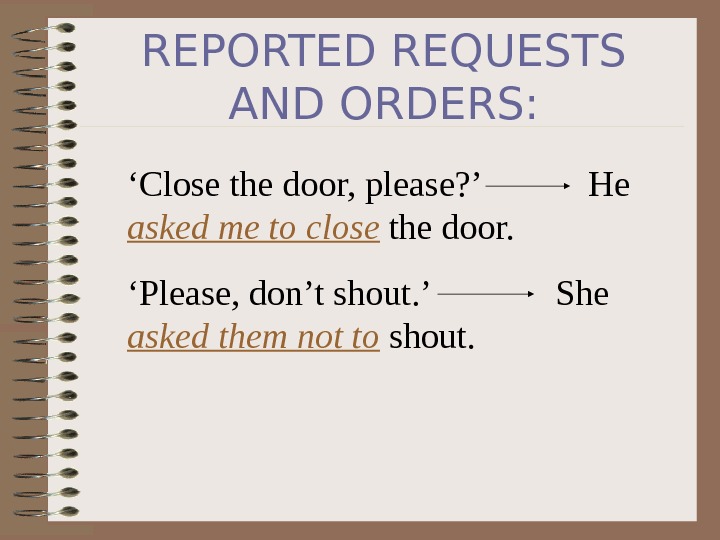
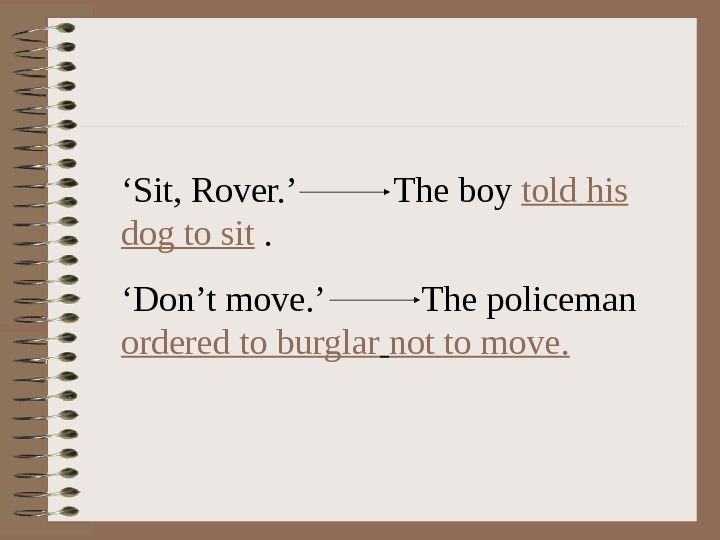
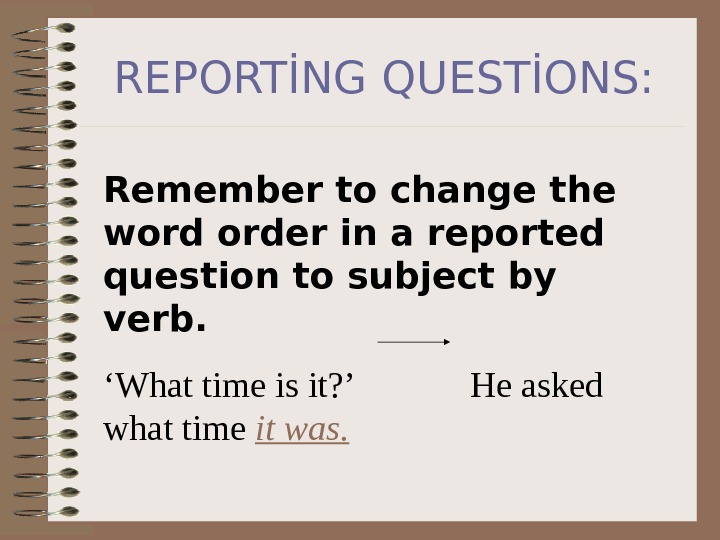
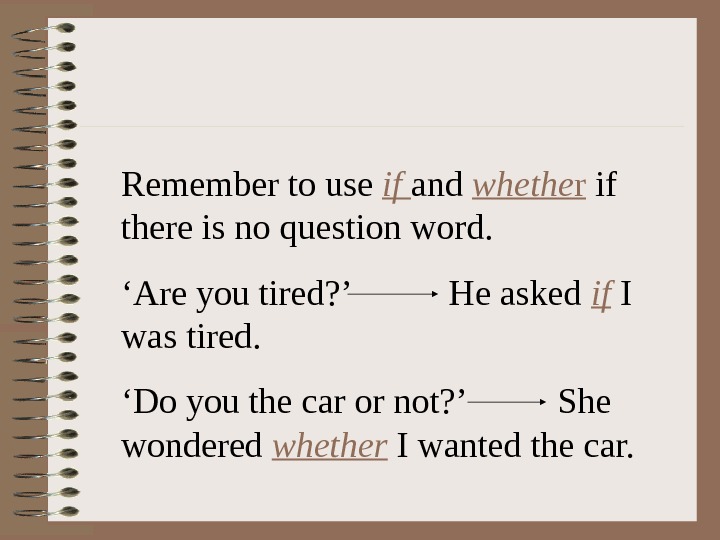

- Размер: 193.5 Кб
- Количество слайдов: 29
Описание презентации Презентация Z- Reported Speech по слайдам
 REPORTED SPEECH
REPORTED SPEECH
 • Reported speech refers to using a noun clauses to report what someone has said. No quotation marks are used.
• Reported speech refers to using a noun clauses to report what someone has said. No quotation marks are used.
 • Notice the changes in the verb forms from qouted speech to reported speech in the following examples:
• Notice the changes in the verb forms from qouted speech to reported speech in the following examples:
 Quoted speech: She said , ”I watched TV every day. ” Reported speech : She said (that) she watched TV every day.
Quoted speech: She said , ”I watched TV every day. ” Reported speech : She said (that) she watched TV every day.
 Quoted speech: She said , ”I am watcing TV. ” Reported speech: She said (that) she was watcing TV.
Quoted speech: She said , ”I am watcing TV. ” Reported speech: She said (that) she was watcing TV.
 To report what someone said , we use a reporting verb followed by an optional THAT.
To report what someone said , we use a reporting verb followed by an optional THAT.
 FOR EXAMPLE: He said that he wants us to read Chapter six. Jeff said that he was coming here.
FOR EXAMPLE: He said that he wants us to read Chapter six. Jeff said that he was coming here.
 I am traini ng. She said that she was trainin g.
I am traini ng. She said that she was trainin g.
 When you report samebody’s word using (said , asked, etc. ) you usually change the tence to one further back in the past.
When you report samebody’s word using (said , asked, etc. ) you usually change the tence to one further back in the past.
 CHANGES: 1. Direct speech: ‘ I ’ ll put the letters in the post. ’ Change: will to whould Reported speech: He said we would put the letters in the post.
CHANGES: 1. Direct speech: ‘ I ’ ll put the letters in the post. ’ Change: will to whould Reported speech: He said we would put the letters in the post.
 2. Direct speech: ‘ I work for insurance company. Change: work to worked Reported speech: She said she worked for an insurance company.
2. Direct speech: ‘ I work for insurance company. Change: work to worked Reported speech: She said she worked for an insurance company.
 3. Direct speech: ‘ We can’t borrow any more. ’ Change: can’t to couldn’t work Reported speech: They said they couldn’t borrow any more money from the bank.
3. Direct speech: ‘ We can’t borrow any more. ’ Change: can’t to couldn’t work Reported speech: They said they couldn’t borrow any more money from the bank.
 4. Direct speech: ‘ We’ ve moved to a bigger house. ’ Change: have moved to had moved Reported speech: They said they had moved to a bigger house.
4. Direct speech: ‘ We’ ve moved to a bigger house. ’ Change: have moved to had moved Reported speech: They said they had moved to a bigger house.
 5. Direct speech: ‘ I must pay the gas bill. ’ Change: must to had to Reported speech: She said she had to pay the gas bill.
5. Direct speech: ‘ I must pay the gas bill. ’ Change: must to had to Reported speech: She said she had to pay the gas bill.
 NO CHANGES : Some verb tences used in direct speech do not change in reported speech. The ‘reporting’ verb is often in the present tence.
NO CHANGES : Some verb tences used in direct speech do not change in reported speech. The ‘reporting’ verb is often in the present tence.
 The verbs do not normally changed when : 1. reporting a present state of affairs e. g. Direct speech: ‘ The cost of living here is high. ’ Reported speech: The reporter said that the cost of living here is high.
The verbs do not normally changed when : 1. reporting a present state of affairs e. g. Direct speech: ‘ The cost of living here is high. ’ Reported speech: The reporter said that the cost of living here is high.
 2. reporting things which are always true e. g. Direct speech: ‘ It’s always cold at this time of year. ’ Reported speech: Mary says it’ s always cold at this time of year.
2. reporting things which are always true e. g. Direct speech: ‘ It’s always cold at this time of year. ’ Reported speech: Mary says it’ s always cold at this time of year.
 3. reported thing we believe(or someone believes) will happened e. g. Direct speech: ‘ They’re going to sack 300 workers next week. ’ Reported speech: The union representative said thay are going to sack 300 workers next week.
3. reported thing we believe(or someone believes) will happened e. g. Direct speech: ‘ They’re going to sack 300 workers next week. ’ Reported speech: The union representative said thay are going to sack 300 workers next week.
 4. They are modal stractures ; would, could, might, ought, and should, e. g. Direct speech: ‘ You might be mistaken. ’ Reported speech: She said (that) he might be mistaken.
4. They are modal stractures ; would, could, might, ought, and should, e. g. Direct speech: ‘ You might be mistaken. ’ Reported speech: She said (that) he might be mistaken.
 REPORTING STATEMENTS 1. VERB(+THAT) (e. g. Say, claim, explain, admit, insist, agree, complain, ) ‘ I’m hot. ’ She explained that he was hot. ‘ I’m an art student. ’ She said she was an art student.
REPORTING STATEMENTS 1. VERB(+THAT) (e. g. Say, claim, explain, admit, insist, agree, complain, ) ‘ I’m hot. ’ She explained that he was hot. ‘ I’m an art student. ’ She said she was an art student.
 NOTİCE : admit and deny can also be followed by the –ing form.
NOTİCE : admit and deny can also be followed by the –ing form.
 1. VERB+pronoun/noun(T HAT) (e. g. tell) ‘ I’m an art student. ’ She told him (that)she was an art student.
1. VERB+pronoun/noun(T HAT) (e. g. tell) ‘ I’m an art student. ’ She told him (that)she was an art student.
 2. VERB+infinitive (e. g. offer, refuse, agree, promise) ‘ I’ll take you to the dance. ’ He offered to take her to the dance.
2. VERB+infinitive (e. g. offer, refuse, agree, promise) ‘ I’ll take you to the dance. ’ He offered to take her to the dance.
 4. VERB+for+ -ing form (e. g apologize, thank) ‘ I’m sorry I trod on your foot. ’ She apologized for treading on his foot.
4. VERB+for+ -ing form (e. g apologize, thank) ‘ I’m sorry I trod on your foot. ’ She apologized for treading on his foot.
 REPORTED REQUESTS AND ORDERS: ‘ Close the door, please? ’ He asked me to close the door. ‘ Please, don’t shout. ’ She asked them not to shout.
REPORTED REQUESTS AND ORDERS: ‘ Close the door, please? ’ He asked me to close the door. ‘ Please, don’t shout. ’ She asked them not to shout.
 ‘ Sit, Rover. ’ The boy told his dog to sit . ‘ Don’t move. ’ The policeman ordered to burglar not to move.
‘ Sit, Rover. ’ The boy told his dog to sit . ‘ Don’t move. ’ The policeman ordered to burglar not to move.
 REPORTİNG QUESTİONS: Remember to change the word order in a reported question to subject by verb. ‘ What time is it? ’ He asked what time it was.
REPORTİNG QUESTİONS: Remember to change the word order in a reported question to subject by verb. ‘ What time is it? ’ He asked what time it was.
 Remember to use if and whethe r if there is no question word. ‘ Are you tired? ’ He asked if I was tired. ‘ Do you the car or not? ’ She wondered whether I wanted the car.
Remember to use if and whethe r if there is no question word. ‘ Are you tired? ’ He asked if I was tired. ‘ Do you the car or not? ’ She wondered whether I wanted the car.
 REPORTİNG SUGGESTİONS: Suggest can be followed by an –ing form, or that + should + infinitive ‘ Let’s go home. ’ He suggested going home. He suggested that they should go home.
REPORTİNG SUGGESTİONS: Suggest can be followed by an –ing form, or that + should + infinitive ‘ Let’s go home. ’ He suggested going home. He suggested that they should go home.

